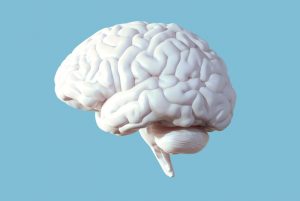Biotech company Bionaut Labs has just cleared a $20 million Series A funding round to continue developing tiny robots designed to treat disorders in the Central Nervous System. The funding round was backed by Khosla Ventures, Upfront Ventures, Revolution, BOLD Capital, and Compound.
Medical conditions such as glioma and Huntington's disease are targets for the company’s “Bionauts.” The robots are designed to enter the well-protected Central Nervous System that has been out of reach without causing a variety of side effects for the patient.
The robots are capable of delivering biologics, nucleic acids, and small molecule therapies. Future implications could include gene therapies, CRISPR, anti-sense oligonucleotides (ASOs), and oncolytic viruses.
Bionauts offer a less invasive operation by rotating through the Central Nervous System using magnetic fields generated outside of the body. Bionaut Labs’ Co-Founder and Chief Executive Officer Michael Shipigelmacher said, “We bring into the picture the anatomical precision, getting into the right anatomical target, and then once we release the payload, it provides the cellular, or biochemical precision, in the right spot. And that is oftentimes the gap, that anatomical precision.”
Bionaut Labs believes that if it can successfully penetrate the Central Nervous System without causing harm to the patient, then doors to many conditions can be unlocked. It may also be able to treat conditions on other parts of the body, as its targeted delivery methods are needed in liver, pancreatic, and cardiovascular cancers.
The company has performed preclinical studies on mice and larger animals for robot testing. As of now no long-term neurological damage was recorded after insertion or removal. In the studies, the robots were able to treat glioma tumors by delivering therapeutic payloads into the tumor. Bionaut Labs is working to conduct human clinical trials in 2023.
The small size of the devices also has the ability to bring down costs, as the precision drug delivery that allows the robots to cause less harm to the patient also requires smaller dosages of medication. While the potential payoff is huge, the company has stated that the payloads are not clinically approved as of now.
Through the use of these tiny robots, developers are closer than ever to treating sensitive systems in the body. Bionauts may open the door to treating life threatening medical conditions that have been out of reach for decades.























